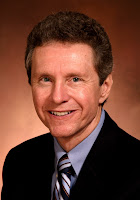 AMERICAN FORUM
AMERICAN FORUM
By Dr. Jeffery Patterson
Federal lawmakers are weighing a BP-type deregulation of new nuclear reactors - the one energy source in which damage from a major accident could dwarf harm done by a ruptured offshore oil well.
In this effort, the nuclear industry's backers are working both sides of the street. On one hand, they proclaim that the current nuclear regulatory system is so superior, it could well serve as a model for regulating the petrochemical industry.
Click to read the full article












